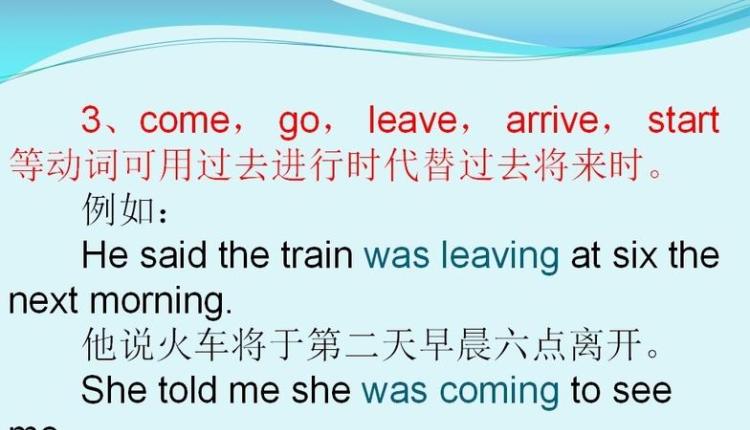"would"、"was / were going to"、"was / were planning to"和"had intended to"是英语中常用的过去将来时提示词,它们分别用于表示过去某个时间点的意图、计划或安排。正确使用这些提示词可以帮助我们更准确、清晰地表达意思。

would
"would" 是最常用的过去将来时的提示词之一。它可以表示过去某个时间点的意图、计划或安排。例如:“I said I would call you tomorrow”(我说过我会在明天打电话给你)。
was / were going to
"was / were going to" 表示过去某个时间点的计划或安排。例如:“I was going to meet my friend yesterday, but he cancelled the plan”(我昨天本来要和朋友见面,但他取消了计划)。
was / were planning to
"was / were planning to" 表示过去某个时间点的计划或安排。例如:“I was planning to go to the concert, but my boss asked me to work overtime”(我原本计划去看音乐会,但老板让我加班)。
had intended to
"had intended to" 表示过去某个时间点的意图或计划,但是最终没有实现。例如:“I had intended to apply for the job, but I missed the deadline”(我本来想申请那份工作,但错过了截止日期)。
